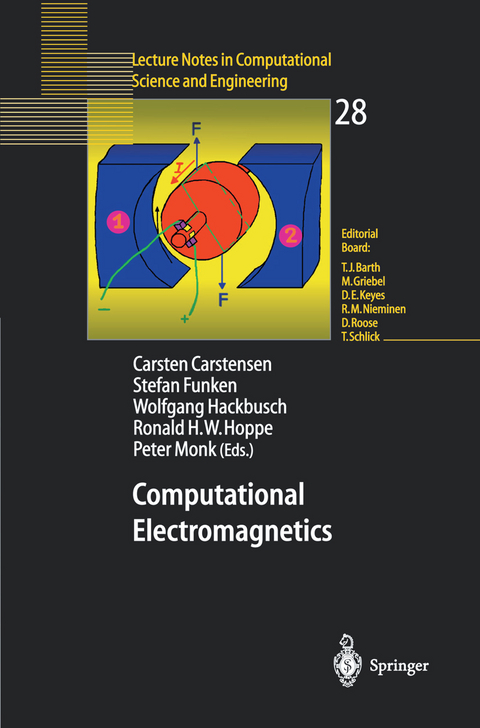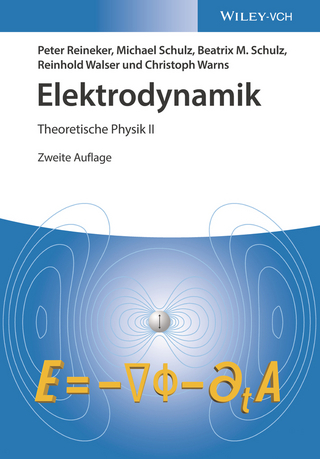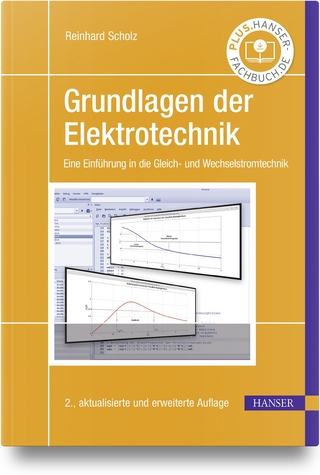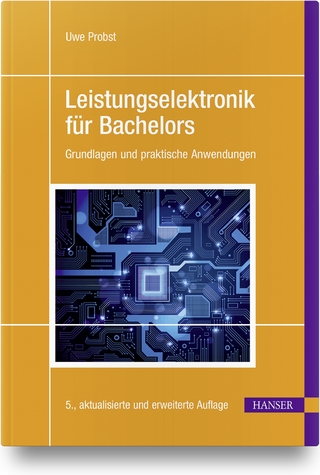
Computational Electromagnetics
Springer Berlin (Verlag)
978-3-540-44392-6 (ISBN)
Gauged Current Vector Potential and Reentrant Corners in the FEM Analysis of 3D Eddy Currents.- Finite Elements for the Time Harmonic Maxwell's Equations.- Trace Theorems on Non-Smooth Boundaries for Functional Spaces Related to Maxwell Equations: an Overview.- Applications of the Mortar Element Method to 3D Electromagnetic Moving Structures.- Numerical Stability of Collocation Schemes for Time Domain Boundary Integral Equations.- hp-Adaptive Finite Elements for Maxwell's Equations.- Coupled Calculation of Eigenmodes.- Boundary Element Methods for Eddy Current Computation.- A Simple Proof of Convergence for an Edge Element Discretization of Maxwell's Equations.- The Time-Harmonic Eddy-Current Problem in General Domains: Solvability via Scalar Potentials.- Finite Element Micromagnetics.- Finite Integration Method and Discrete Electromagnetism.- Appendix. Color Plates.
| Erscheint lt. Verlag | 13.2.2003 |
|---|---|
| Reihe/Serie | Lecture Notes in Computational Science and Engineering |
| Zusatzinfo | X, 210 p. 23 illus., 4 illus. in color. |
| Verlagsort | Berlin |
| Sprache | englisch |
| Maße | 155 x 235 mm |
| Gewicht | 393 g |
| Themenwelt | Mathematik / Informatik ► Informatik |
| Naturwissenschaften ► Physik / Astronomie ► Elektrodynamik | |
| Naturwissenschaften ► Physik / Astronomie ► Optik | |
| Schlagworte | boundary element methods • computational electromagnetics • domain decompostion • edge elements • electromagnetism • finite integration technique • Magnetic field • Maxwell' s equations • Maxwell's equations • micromagnetics • Modeling • Numerical Methods • Simulation |
| ISBN-10 | 3-540-44392-4 / 3540443924 |
| ISBN-13 | 978-3-540-44392-6 / 9783540443926 |
| Zustand | Neuware |
| Haben Sie eine Frage zum Produkt? |
aus dem Bereich


